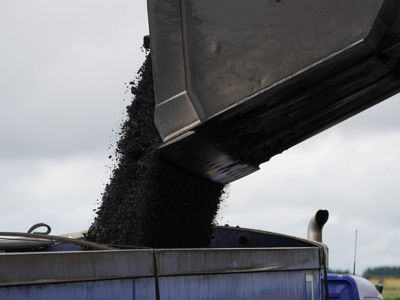
Plans to expand oil and gas production site in Lincolnshire quashed
North Lincolnshire Council has conceded that planning permission for the expansion of a fossil fuel extraction site in Wressle should not have been granted following the threat of legal action from environmental campaigner Sandie Stratford.
Posted on 23 October 2024
It is the second Lincolnshire fossil fuel development to be quashed in recent months, with the decision to approve exploratory drilling and extraction at Biscathorpe also overturned in July following a legal challenge brought by SOS Biscathorpe.
After receiving a pre-action protocol letter from campaigner Sandie – who is represented by law firm Leigh Day – which threatened to bring a judicial review of the proposed Wressle development, both the local authority and developer, Egdon Resources, have confirmed they will not be resisting the legal challenge.
The letter argued that the council had acted unlawfully by granting planning permission for the expansion without fully considering its environmental impact.
Sandie’s argument was based on a landmark Supreme Court judgment in Finch vs Surrey County Council, given in June 2024, which ruled that downstream emissions from the burning of fossil fuels extracted at a site or development must be assessed as part of an environmental impact assessment (EIA) for a planning application.
Lincolnshire Wildlife Trust had also objected to the Wressle site planning application on multiple points including inadequate community involvement and consultation, traffic management and mitigation and on the basis that there was no need to further expand oil and gas exploration at the site.
Despite the ruling, permission for the expansion – which would have seen the addition of two new oil and gas wells at the Wressle site – was granted in September 2024 without any such considerations or assessments having taken place.
A planning application for the project was originally submitted by Egdon Resources in March 2024 without carrying out an EIA. The decision to do no EIA relied on an out-of-date High Court ruling which determined that downstream emissions did not need to be assessed and accounted for.
Sandie’s letter argued that this ruling had now been overtaken by June's landmark Finch judgment which should have been factored in by the council when making its decision on the Wressle expansion in September.
Joint venture partners in the project (Union Jack Oil and Europa Oil & Gas) have also confirmed that they are not in the position to defend the proposed legal change, and that it is fully expected the planning consent will be quashed once the court process has concluded.
Sandie Stratford said:
“I’m delighted the council have recognised their error and will now properly consider the environmental impacts of oil and gas expansion in their county. The climate emergency demands we stop all new fossil fuel extraction. This means getting serious about reducing demand and increasing renewable energy sources.”
Leigh Day environment team solicitor Julia Eriksen said:
“This result once again demonstrates the practical impact of the Supreme Court’s judgment in Finch. As a result of that decision, it is almost inconceivable that a hydrocarbon production application could go forward without an environmental impact assessment being carried out which considers the downstream emissions of the project. The council’s concession that the decision to grant planning permission at Wressle was unlawful is another significant climate victory in the campaign to stop fossil fuel expansion in the UK and a brilliant win for our client and the community in Lincolnshire.”
Amanda Suddaby from SOS Biscathorpe said:
“Just in the last month we have seen unprecedented extreme weather events across the globe, from torrential flooding across Europe to hurricanes in the United States. These events are linked to global warming which is caused by the rise of greenhouse gases in our atmosphere. The Supreme Court ruling in Finch explained this connection in its opening paragraph. And that is why we need decision-makers to assess developments with full knowledge of the facts and a proper understanding of how their decisions contribute to the climate crisis facing us all.”

Cumbrian coal mine planning permission ruled unlawful by High Court
The High Court has ruled that the approval of planning permission for a new coal mine in Cumbria was unlawful.

Oceana UK files legal challenge calling recent oil & gas licences ‘unlawful’, as open letter calls on new government to concede
The oceans charity Oceana UK has moved forward with its legal challenge over fossil fuel exploration licences in UK waters, filing its case at the High Court. In response to the initial threat to take the government to court over the harm to UK seas, the previous government stated ahead of the election that it would defend the decision.


